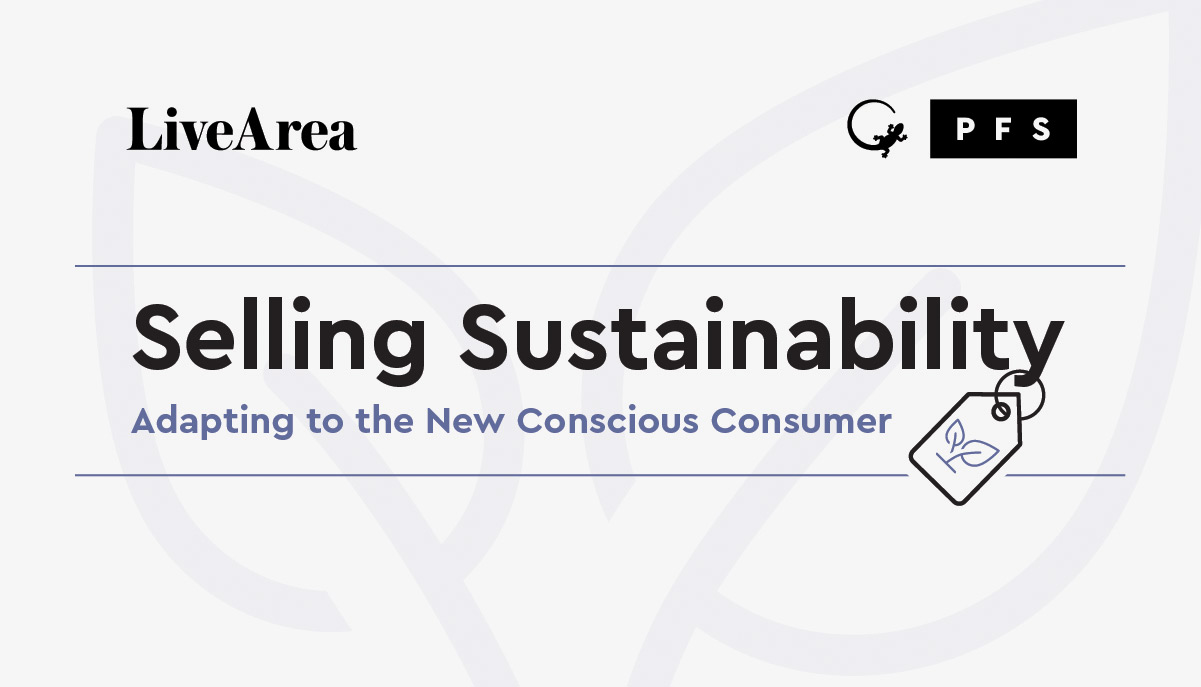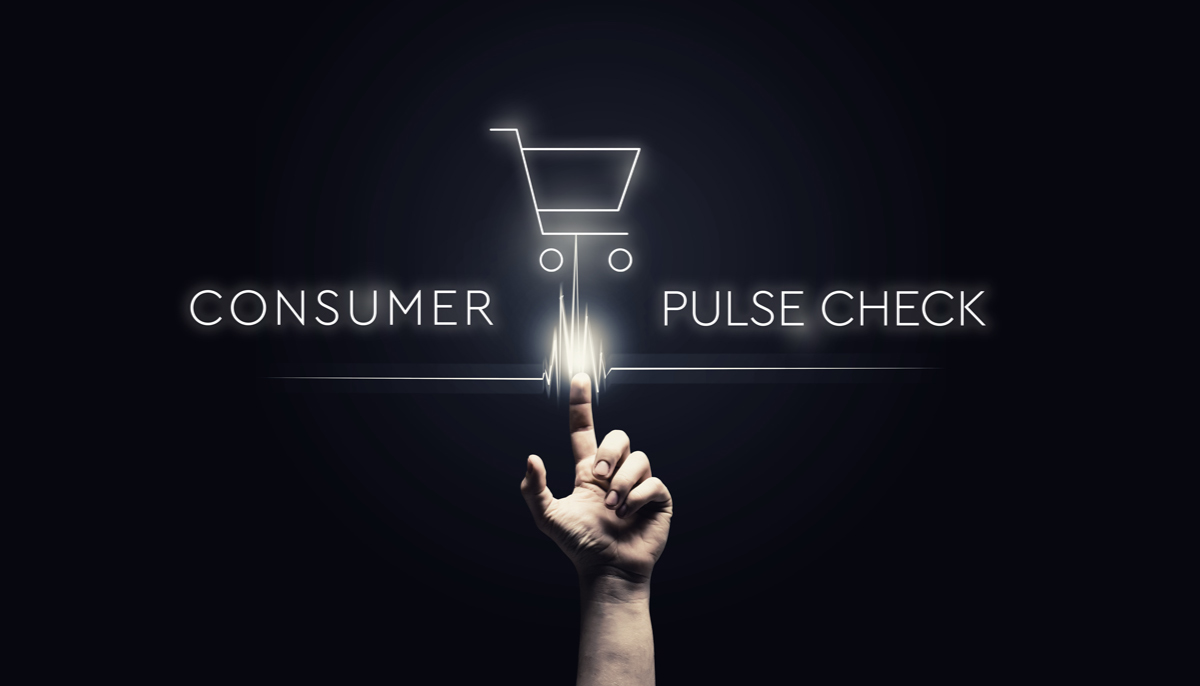
PFS & LiveArea Research | Consumerism vs. Conscious Commerce: Striking the Balance
Section 1: Sustainability
2020 has been a year of great change for consumers and retailers alike. Buying habits have been hugely affected, with the closure of physical stores pushing more people online and putting great strain on retailers to keep up with demand and retain loyal customers during a period of great adjustment.
PFS and LiveArea, now a Merkle company, commissioned research agency, Arlington Research, to survey 2,500 consumers about their current shopping habits, environmental and ethical expectations from brands, and how their buying behavior has changed during the Coronavirus pandemic.
Nationally representative interviews were carried out with consumers aged 18+ with nationally representative quotas set on gender, age and region at a country-wide level. Respondents came from the UK (1,500 respondents), Republic of Ireland (500 respondents) and France (500 respondents). Fieldwork took place between 28th May and 4th June, 2020.
The report highlights how the COVID-19 pandemic has increased consumer awareness of the environmental impact their online shopping habits have and how they are responding.
Key findings
- Supporting sustainability: Around three-quarters (73%) of consumers expect the brands they shop with online to use recyclable packaging. The same number expect packaging to be minimized (74%).
- Over-purchasing: In light of the pandemic, over a third (37%) of shoppers claim to have stopped over-purchasing items.
- Returns: Our research suggests that 71% of consumers would change their online shopping habits if they knew that returned items would go to landfill or be destroyed.
- Maintaining change: Almost three-quarters (72%) of consumers plan to continue with the changes they have made to their shopping habits during the pandemic. For 27% this means not over-purchasing items; 23% will continue to buy locally sourced or manufactured products.
Download the whitepaper and watch the on-demand webinar for further insight.
Section 2: Ethics
Many consumers are actively seeking out online retailers and brands who promote their ethical initiatives and credentials. Following the pandemic, awareness around brand ethics has been heightened, both on those making progress in terms of ethical trading and their obligations to protect, conserve and benefit the environment, as well as those whose supply chain ethics and treatment of staff could be called into question.
Key Findings
- Supporting brand ethics: 39% of people would be willing to pay more to support online retailers’ and brands’ corporate social responsibility initiatives
- Awareness: 44% of respondents have not been made aware of corporate social responsibility initiatives or their impact by their preferred retailers.
- Buying decisions: 64% of shoppers look for ethical or sustainable features when making a purchase.
- Communication: When made aware of initiatives, only 16% of consumers say it is via a brand’s website.
Download the ethics whitepaper for more on the role ethics play in eCommerce.
Section 3: Brand Loyalty
Consumer loyalty has been put to the test in 2020. When it comes to brand loyalty, consumers now have new factors to consider, such as how well a retailer responded and acted during the COVID-19 pandemic and the extent of their ethical actions. It has also made consumers aware of brands that have missed the mark. So, what is the depth of feeling among consumers about how retailers have reacted to the pandemic? Do sustainable and ethical initiatives foster increased brand loyalty? And what more should online retailers and brands be doing to keep customers loyal during uncertain times and beyond?
Key Findings
- Importance of personal communication: How a brand interacts with customer and personalizes communications can make the difference between an occasional buyer and loyal brand advocate. Four in ten (42%) consumers want brands to personalize their customer messaging, while 64% of consumers are more likely to buy from online retailers and brands that stay in touch and offer frequent order updates.
- Brands taking positive action: Brands that have actively helped communities and staff during the pandemic have not gone unnoticed by consumers. Six in ten (58%) of consumers feel greater loyalty towards online retailers and brands that have helped people during the pandemic.
- The effect of cancel culture: The prevalence of social media to voice opinions, coupled with online ratings for products and purchases, has made the process of complaints and compliments shift from pure word of mouth to instant online amplification. Over half (57%) of Millennials share their negative online shopping experiences with friends and family.
- Supporting small businesses: With raised awareness around the need to keep businesses afloat, as well as the increase in people working from home, the pandemic has resulted in increased support for smaller businesses. A third (34%) of consumers in the UK and Ireland have supported smaller retailers, after moving away from larger businesses.
Brand Loyalty: Engaging the New Conscious Consumer | Download the white paper now for further insight.
PFS’ view
There is a complicated dichotomy at play here for both consumers and retailers. Consumers are still cost conscious, but feel a growing responsibility to care for the environment. Our research indicates that consumers are willing to commit to the environment, ethical sourcing and more mindful commerce practices with their wallets. However, consumers are relying on retailers and brands to help them do their part while remaining affordable. The challenge for retailers is to meet this growing consumer expectation while protecting their bottom line.
The reality, though, is that there are actually many benefits retailers can gain through corporate social responsibility (CSR) initiatives that go beyond their central goal of caring for the environment. For example, by getting products closer to the customer through alternative fulfillment methods such as pop-up distribution (pop-up DC) or micro-fulfillment centers, brands can provide an improved customer experience while reducing carbon emissions. Likewise, PFS’ RetailConnect store fulfillment solution enables BOPIS and ship-from-store functionality at your brick-and-mortar locations, empowering brands to provide a more convenient customer experience that accomplishes their goal to use sustainable shopping methods, while the brand is able to compete with major marketplaces offering fast delivery options.
Through more efficient packaging solutions such as right-size packaging and frustration-free packaging, retailers can minimize environmental impact while also minimizing returns due to product damaged during shipment. Products is more protected in right-size packaging, and the smaller size means you can fit more in transportation vehicles, therefore decreasing carbon footprints.
As you implement and expand your CSR initiatives, keep an optimistic mindset and look for ways these measures can help make a difference for the environment as well as your bottom line.
Christophe Pecoraro, Managing Director, PFS Europe
LiveArea’s view
There is a lot of noise and so much happening around sustainability that it is hard for consumers to know what’s real and what’s greenwashing. However, highlighting products, for instance, that are eco-friendly, have recyclable packaging, or are locally sourced, and communicating a brand’s sustainability initiatives through product pages is important to inform the consumer, potentially influencing their buying decision.
Traceability is very important, and we’ve seen recent examples of brands suffering major reputational damage due to issues down their supply chain. If some consumers are willing to pay a premium for brands that provide full traceability of their products, brands should be eager to provide this. Consumers do more than just check the list of ingredients on a label now, they want details about sourcing, how products are made, and how they are delivered. Access to this information, most commonly through online policies and packaging, drives better decisions and helps create more sustainable products.
We can see that price is still an important decision-driver for many consumers, and rightly so, particularly at this time. So, while some consumers may be willing to pay more for something that is environmentally friendly, the goal for brands should be for sustainability to be price-friendly and accessible to their consumers. What’s more, there’s an onus on governments and regulatory bodies to introduce legislations to incentivize businesses to better their sustainability practices and help find uniformity across industries. We shouldn’t just have to rely on the demand of the customer to impose these changes.
Benoit Soucaret, Creative Director, LiveArea EMEA



